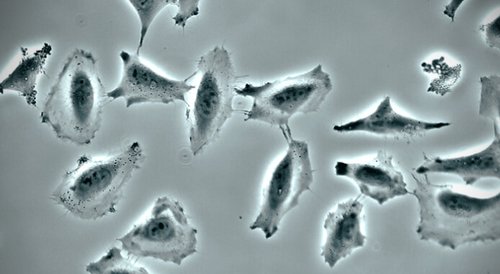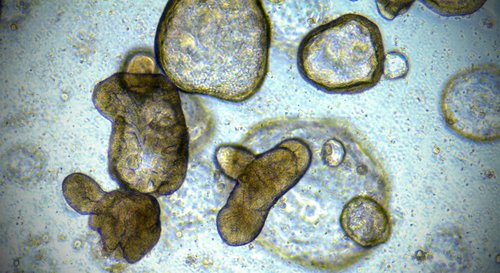Models
Two model types are currently represented in the Dependency Map at Sanger: Cell Lines and Organoids. Detailed annotation and access to datasets for these models can be accessed through the Cell Model Passports.
Cell Lines

Cancer cell lines have been generated over many decades and used extensively by the research community. They are amenable to many assays and applications and can be easily maintained within the laboratory.
Organoids

Organoids are a long-term culture system which allow cells to be grown in specialised three dimensional culture conditions that maintain the stem cell population as well as much of the cell/tissue architecture found in vivo. Cancer organoid models have been shown to recapitulate features of the original tumour and can model clinically relevant drug responses. Newly derived organoids also aim to overcome many of the limitations associated with traditional cell lines such as limited clinical data and lack of associated normal samples that can empower genomic analyses.
Model Curation
Model annotation is compiled from cell banks, academic collaborators, external databases and publications. In order to present model data most effectively a constrained vocabulary was developed to consolidate model descriptors (see Glossary of Terms).
Cross-contamination and mis-identification are obstacles facing researchers when working with cell models. The Cell Model Passports provides users with detailed hierarchical annotation grouping models belonging to the same individual or sample. These model relationships are constructed by combining information obtained during annotation with data obtained from model identification resources such as International Cell Line Authentication Committee (ICLAC) and additional publications. In addition STR profiles obtained during model curation or internally at the Sanger Institute are compared to inform model-patient associations. The Cell Model Passports conservatively assigns models sharing common ancestry to separate samples from a patient unless evidence indicates otherwise.
Unique identifiers utilised by other resources such as Research Resource Identifiers (RRID), the Catalogue of Somatic Mutations in Cancer (COSMIC) and Cancer Cell Line Encyclopedia (CCLE) have been associated with the cell models facilitating integration with other resources and datasets.